Jonatan Lerga
Estimation of Sea State Parameters from Ship Motion Responses Using Attention-based Neural Networks
Jan 21, 2023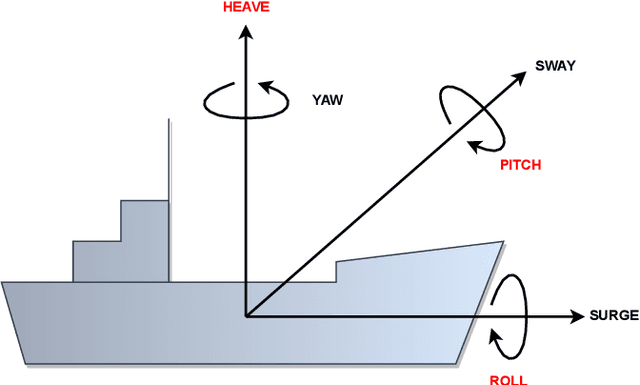
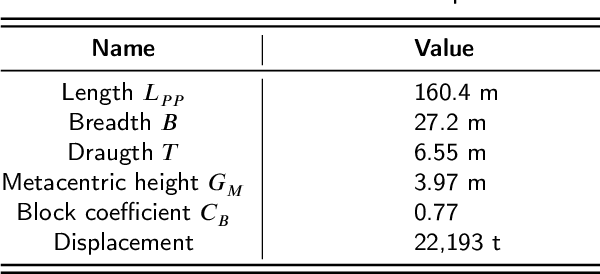
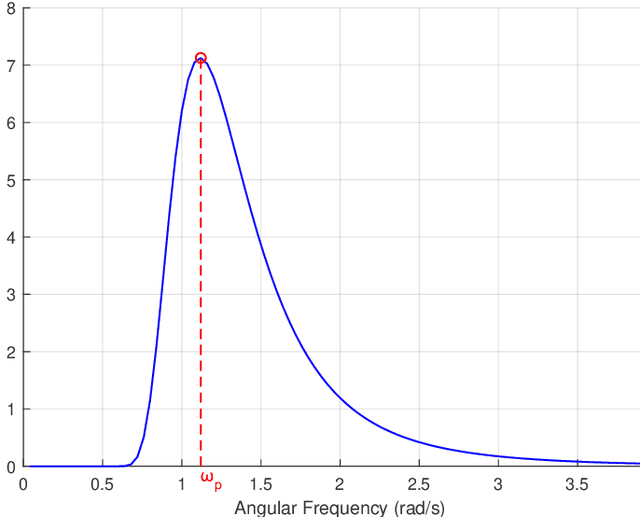

Abstract:On-site estimation of sea state parameters is crucial for ship navigation systems' accuracy, stability, and efficiency. Extensive research has been conducted on model-based estimating methods utilizing only ship motion responses. Model-free approaches based on machine learning (ML) have recently gained popularity, and estimation from time-series of ship motion responses using deep learning (DL) methods has given promising results. Accordingly, in this study, we apply the novel, attention-based neural network (AT-NN) for estimating sea state parameters (wave height, zero-crossing period, and relative wave direction) from raw time-series data of ship pitch, heave, and roll motions. Despite using reduced input data, it has been successfully demonstrated that the proposed approaches by modified state-of-the-art techniques (based on convolutional neural networks (CNN) for regression, multivariate long short-term memory CNN, and sliding puzzle neural network) reduced estimation MSE by 23% and MAE by 16% compared to the original methods. Furthermore, the proposed technique based on AT-NN outperformed all tested methods (original and enhanced), reducing estimation MSE by up to 94% and MAE by up to 70%. Finally, we also proposed a novel approach for interpreting the uncertainty estimation of neural network outputs based on the Monte-Carlo dropout method to enhance the model's trustworthiness.
ML-Based Approach for NFL Defensive Pass Interference Prediction Using GPS Tracking Data
Jun 24, 2022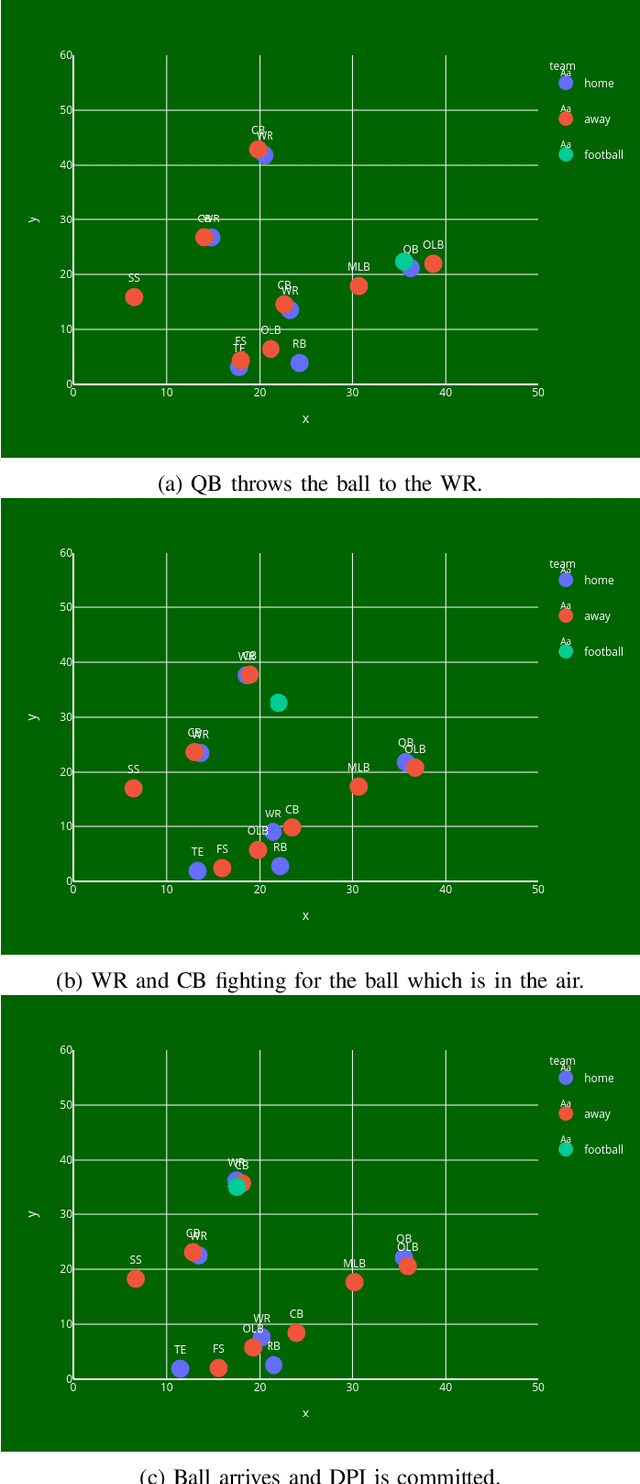
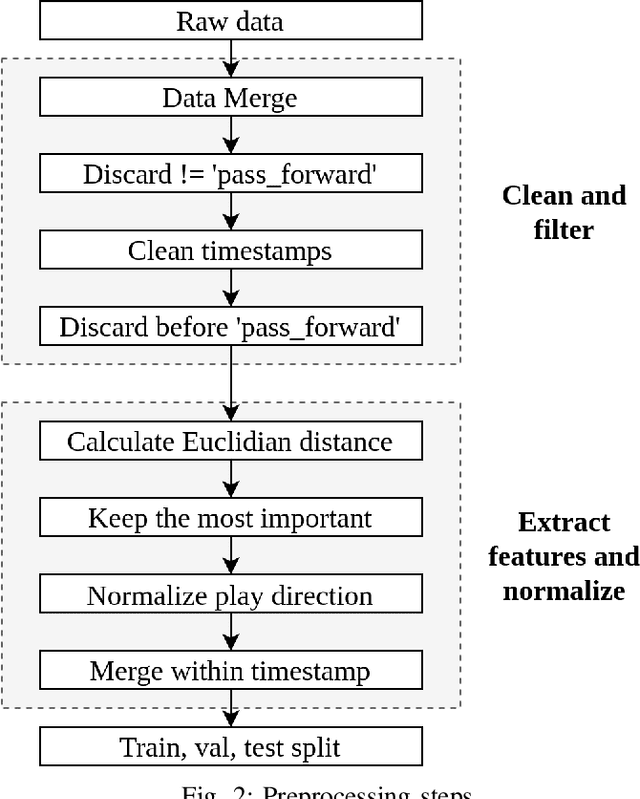
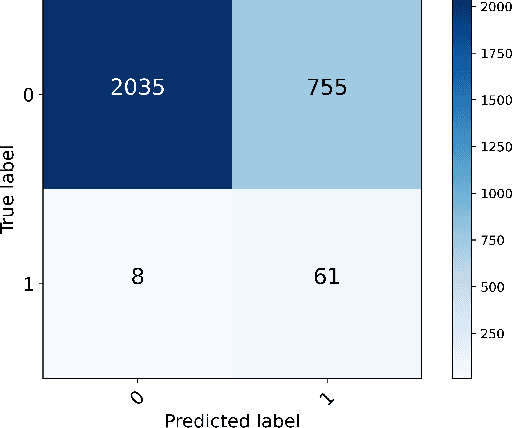

Abstract:Defensive Pass Interference (DPI) is one of the most impactful penalties in the NFL. DPI is a spot foul, yielding an automatic first down to the team in possession. With such an influence on the game, referees have no room for a mistake. It is also a very rare event, which happens 1-2 times per 100 pass attempts. With technology improving and many IoT wearables being put on the athletes to collect valuable data, there is a solid ground for applying machine learning (ML) techniques to improve every aspect of the game. The work presented here is the first attempt in predicting DPI using player tracking GPS data. The data we used was collected by NFL's Next Gen Stats throughout the 2018 regular season. We present ML models for highly imbalanced time-series binary classification: LSTM, GRU, ANN, and Multivariate LSTM-FCN. Results showed that using GPS tracking data to predict DPI has limited success. The best performing models had high recall with low precision which resulted in the classification of many false positive examples. Looking closely at the data confirmed that there is just not enough information to determine whether a foul was committed. This study might serve as a filter for multi-step pipeline for video sequence classification which could be able to solve this problem.
 Add to Chrome
Add to Chrome Add to Firefox
Add to Firefox Add to Edge
Add to Edge